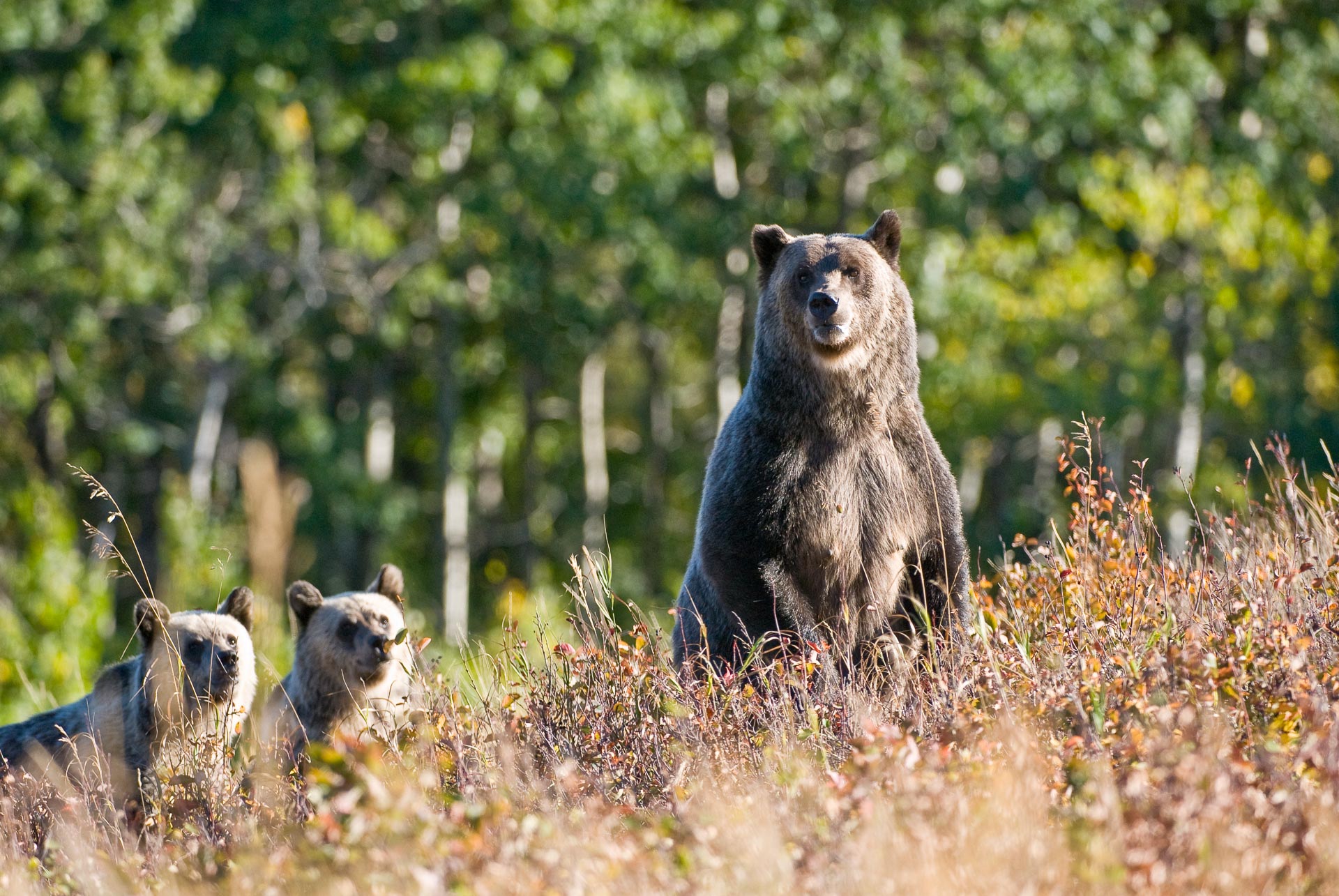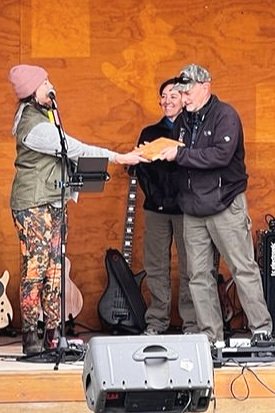
Current Rise in Grizzly Bear Conflicts Preventable
Conflicts between people and grizzly bears rose again last year, while the number of bears poached or killed by managers also grew as a proportion of overall grizzly bear deaths in Montana’s Northern Continental Divide Ecosystem, grizzly bear mangers reported last week.
Unfortunately, much of the conflict and resulting death could have been prevented. According to Montana Fish, Wildlife and Parks grizzly bear research biologist Cecily Costello, more than a third of the 272 conflict calls Montana FWP fielded last year involved bears accessing “unnatural food,” mostly unsecured garbage and pet food, but also improperly stored human food, bird seed, and unharvested fruit. The other leading source of conflict was poor animal husbandry practices, primarily bears raiding chicken coops that lacked cheap, easy to install electric fencing or other protective measures.
“I find this very disheartening,” Costello said. “Bears have been listed for 47 years now, and it’s hard for me to believe that we’re this far into it and we’re still talking about garbage.”
It is incredibly disheartening indeed, especially since we have the tools and the knowledge to minimize many of these conflicts, improve human and grizzly bear safety, and sustain rural livelihoods. The growing conflicts, no matter how preventable, only add to the rancor and politicization of grizzly bear management. Addressing these conflicts is not just the responsibility of grizzly bear managers. It is the responsibility of all of us who live, work, and play in grizzly bear country to make sure our home spaces and behavior are bear wise.
Expanding awareness about responsibly sharing the land with bears is complicated by the influx of new residents and visitors to northwest Montana, many of whom lack basic knowledge and awareness of grizzly bears. An emergent challenge according to bear managers is the proliferation of vacation rentals, and now privately run, non-traditional campgrounds, which disperse people more widely across bear habitat and their de-centralized management makes spreading good information more difficult.
With that in mind, here are three simple things anyone who lives or visits bear country can do to keep yourself and grizzly bears safe:
- Keep a clean camp (or house, yard, garage, or ranch). Store garbage, human food, pet food, bird seed, fruit, grains, and other attractants in bear resistant containers or other locations inaccessible to bears.
- Carry bear spray and know how and when to use it. Check the expiration date annually.
- Educate others – set aside time to teach out of town guests (or new neighbors!) how to secure attractants at home and minimize bear encounters on the trail.
And if you run a vacation rental, campground, or other tourist accommodation and need bear safety information to provide your guests, we can help! Please reach out to us.
For more tips and information on living, working, and recreating responsibly in bear country, visit https://igbconline.org/be-bear-aware/
Farewell to a Respected Bear Manager
Bear management specialists are the unsung heroes who do much of the difficult and essential work necessary to improve the willingness and ability of people to share the landscape with bears. On Saturday night, our friends at Home Ranch Bottoms and the North Fork Preservation Association hosted a farewell hootenanny for one of the best - Tim Manley, the long-time grizzly bear management specialist for FWP Region 1. Tim retired at the end of last year after a nearly 40-year career. Friends, colleagues, and local landowners praised Tim’s dedication, professionalism, and ability to gain people’s trust, key aspects of his success. And they told some pretty good bear tales, like the time Tim drugged a bear in Columbia Falls but lacked a way to transport it out of town. Ever resourceful, he somehow managed to get it into his camper on the back of his pickup. He then drove to meet a colleague and the two of them transferred the still-drugged bear to a culvert trap for further transport to a release site.
To Tim Manley, and all the other dedicated, hard working grizzly bear specialists with our tribal, state, and federal agencies, we cannot thank you enough for all you do to help make Montana a place where bears and people can thrive. While Tim’s expertise and trustworthiness will undoubtedly be missed, locals lauded the selection of his mentee Justine Vallieres as his replacement.

Community Conversation on State Wildlife Policy Issues Planned
Unfortunately, the current Montana legislature and administration have instituted legal and policy changes that hinder the ability of Montana FWP biologists to continue to effectively manage bears as Tim did, including limiting the use of a key tool in managers conflict prevent toolbox: relocation. To help people better understand and explore this and other key policy issues confronting the conservation and management of grizzly bears, elk, bison and other cherished species in our region, as well as ways to engage ahead of the next legislative session, Glacier-Two Medicine Alliance is hosting a community conversation with Marcus Strange, Director of State Policy for the Montana Wildlife Federation, on Wednesday, June 8th at 7 p.m. at the Women’s Club in East Glacier. The forum is free and open to the public.
